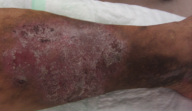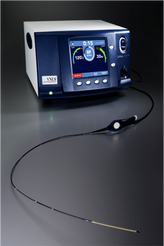
This link will take you directly to the clinical practice guidelines advocated by the american venous forum and the society of vascular surgery. The aim of the guideline is to reduce the incidence and prevalence of chronic venous insufficiency and venous ulceration in the united states.

There are at least four recent randomized controlled trials comparing the benefits of endovenous ablation, open surgery and ultrasound guided foam sclerotherpay. Whilst the medium to long term outcomes appear to be the same for thermocoagulation and surgery it appears radio frequency ablation produces less bruising and pain in the short term.
|

The Nice guidelines for the treatment of venous disease advocate a minimally invasive approach to varicose veins. The key treatment recommendations are outlined below. Make sure you seek advice from a vocationally recognized specialist that is able to offer and advise on all treatment modalities.
EXTRACT TAKEN FROM THE GUIDE Interventional treatment "For people with confirmed varicose veins and truncal reflux: Offer endothermic ablation with either Radiofrequency ablation of varicose veins and / or Endovenous laser treatment of the long saphenous vein. If endothermal ablation is unsuitable, offer ultrasound‑guided foam sclerotherapy. If ultrasound‑guided foam sclerotherapy is unsuitable, offer surgery. If incompetent varicose tributaries are to be treated, consider treating them at the same time." |